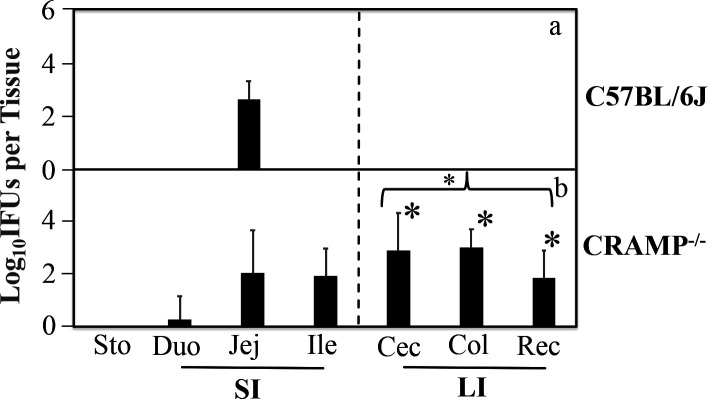Fig 4.
Effect of CRAMP deficiency on the spreading of pGP3-deficient C. muridarum from the small intestine into the large intestine. C57BL/6J mice without (panel a, n = 4) or with a deficiency in CRAMP (b, CRAMP−/−, n = 7) were inoculated with 1 × 105 IFUs of CMpGP3S via intrajejunal injection. Three days after the inoculation, mice were sacrificed to collect stomach (Sto), small intestine (SI) tissues [duodenum (Duo), jejunum (Jej), and ileum (Ile)], and large intestine (LI) tissues [cecum (Cec), colon (Col), and rectum (Rec)] as listed along the X-axis. Live CMpGP3S organisms were recovered from each tissue sample and expressed as log10 IFUs per tissue. The data came from two independent experiments. Note that significant levels of live chlamydial organisms were detected in the large intestine of CRAMP−/− mice. * denotes an observed P-value <0.05, based on a Wilcoxon rank-sum test, between C57 and CRAMP−/− in IFU recovery from Cec, Col, and Rec, respectively, as well as the overall large intestinal tissues.

